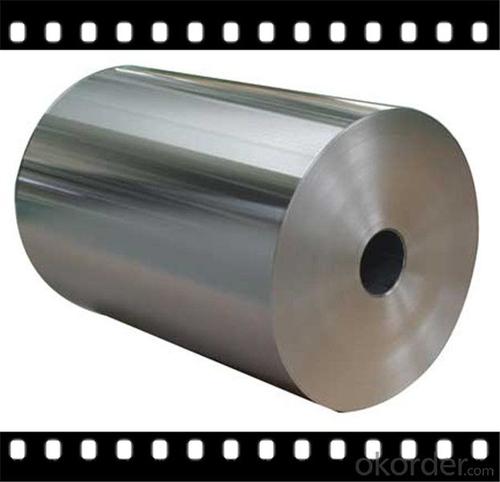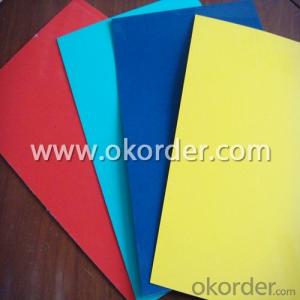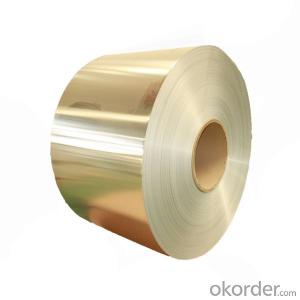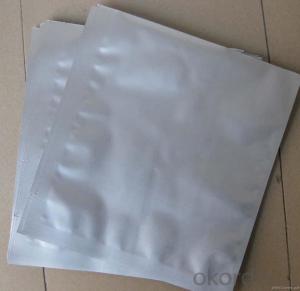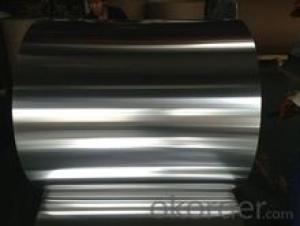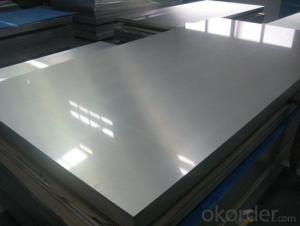Aluminum Foil Coil for Transformer/Electronic Components - DC/CC Aluminium Coil CNBM
- Loading Port:
- Shanghai
- Payment Terms:
- TT OR LC
- Min Order Qty:
- 5 m.t.
- Supply Capability:
- 2000 m.t./month
OKorder Service Pledge
OKorder Financial Service
You Might Also Like
Quick Details
Brand Name: | DC/CC aluminium coil | Model Number: | 1xxx, 3xxx,5xxx, 8xxx | ||||
Application: | Auto parts, household appliances and so on | Thickness: | 0.2~7.0mm, 0.2-7mm | Width: | <1500mm< span=""> | ||
Alloy Or Not: | Is Alloy | Grade: | 1000 Series, 1100 1020 3003 5052 8011 | Surface Treatment: | Coated | ||
Temper: | O - H112 | widthness: | 300-1400mm | ||||
Packaging & Delivery
Packaging Details: | anti-water paper packed inside ,kraft paper or PE ,PVC outside ,wood pallet ,our mini order is 1 ton /pallet |
Delivery Detail: | 10~20 days |
Specifications
1. Aluminum coil
2. Alloy:1xxx,3xxx,5xxx,8xxx
3. Dimension: customized
4. Full stock delivery on time
DC/CC aluminium coil for transformer /electronic components
Grade : 1100.1050,1060,1070,1200, 3003, 3105 ,5052A, 8011. Etc
temper : H14, H24, H18, H12 ,H22 ,H16 ,H26 ,O
Features:
1. Thickness of aluminum coil : 0. 2mm~ 7mm
2. Width of aluminum coil : 1000mm, 1200mm, 1220mm or optional
3. Length of aluminum coil : Optional
4. AA of aluminum coil : 1100.1050,1060,1070,1200, 3003, 3105 ,5052A, 8011. Etc
5. State of aluminum coil : H14, H24, H18, H12 ,H22 ,H16 ,H26 ,O
6.application of aluminum coil :used in construstion and decoration,aluminum roofing ,curtain wall ,hardware and electric appliance manufacture ,automobile manufacture and other industrial and civil purpose ,such as electronic capacitor ,composite cooker,rice cooker ,refrigerator ,computer casing ,airecondtioner radiators,etc.
Status Comparison of Aluminum sheet /Strip | ||||
Temper | Brinnell's Hardness (HB) | Vicker Hardness(HV) | Original Status | Explanation |
O | 19-23 | 23-28 | M soft | Complete annealing state ,suitable for complete annealing to obtain processed product with lowest strength |
H12,H22 | 23-30 | 30-36 | 1/4 hardness | H12 : First anneal in the middle and tehn re-roll to obtain process product with 1/4 hardness; H22 :Directly anneal for 1./4 hardness product |
H14,H24 | 31-40 | 38-42 | half-hard | H12 : First anneal in the middle and tehn re-roll to obtain process product with 1/2 hardness; H22 :Directly anneal for 1/2 hardness product |
H16,H26 | 37*40 | 40-45 | 3/4 hardness | H16 : First anneal in the middle and tehn re-roll to obtain process product with 3/4hardness; H26 :Directly anneal for 3/4 hardness product |
H18 | 40above | 45 above | hard | Hard ,suitbale for processing hardness products |
Terms of Payment: T/T, L/C and other payments
Productivity: 2000 metric ton per month
Certificate: ISO9001,9002,Product Exemption from Quality Surveillance Inspection etc.
Packing: Blank waterproof paper/PE, Kraft, Wooden
Delivery Date: 10---20 days
Min Order: 5 tons
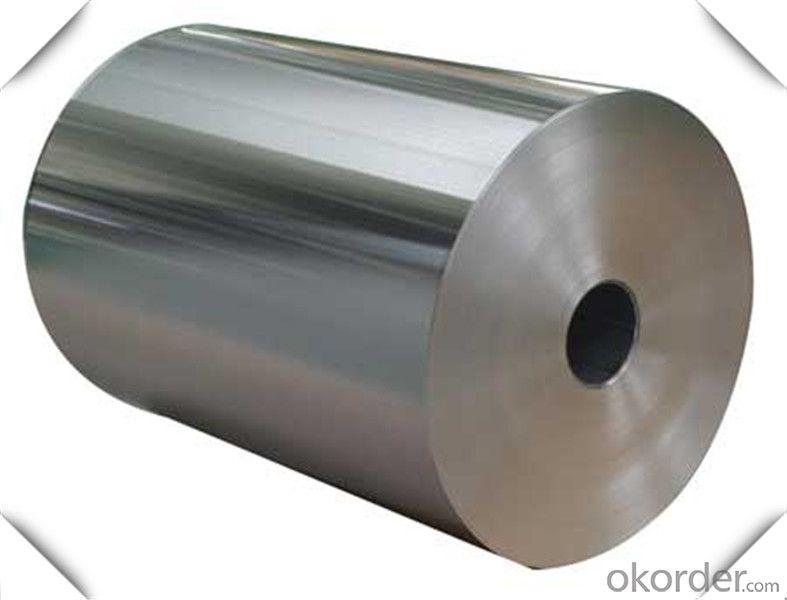
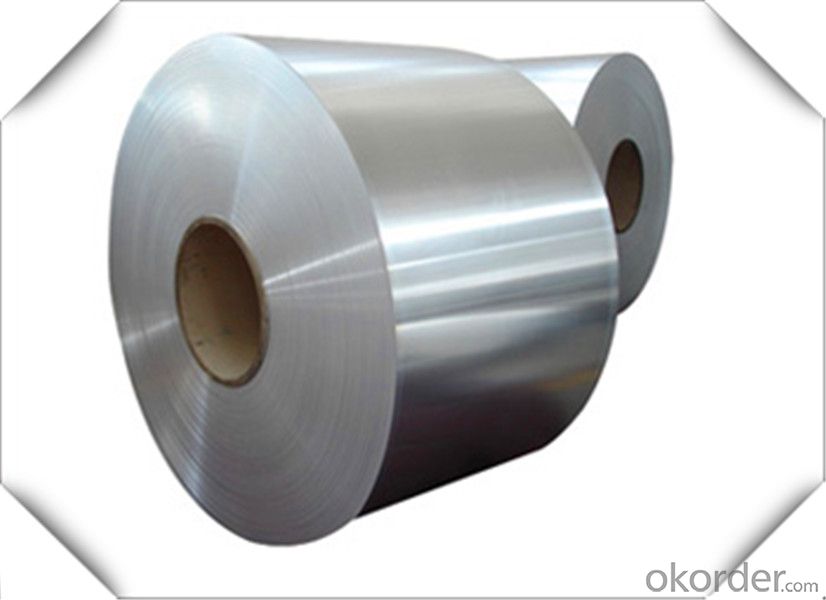
FAQ:
product introduction
the four most common aluminium grades available as sheet metal are 1XXX,3XXX,5XXX series.
1XXX series is commercially pure aluminium,so it is highly chemical and weather resistant.It is ductile enough for deep drawing and weldable.but low strength.It is commonly used in chemical processing equipment,light reflectors,and jewelry.
3XXX series is stronger than 1100,while maintaining the same formability and low cost.
It is corrosion resistant and weldable,It is often used in stampings,spun and drawn paths,mail boxes,cabinets,tanks,reflectors and fan blades.
5XXX series is stronger than 3003 while still maintaining good formability. It maintains high corrosion resistance and weldability,common applications include electronic classis,tanks,and pressure vessels.
- Q: Its got probably 330 horses right now with aluminum heads what do you think it be approx.
- Head material does NOTHING. It is the DESIGN of the heads that is important. WHAT kind of car is this??Aluminum heads can crack easier depending upon WHO makes the heads and for what application. Expect NO real improvement. There are OTHER considerations, like intake system. cam shoice, compression ratio, and other factor5s. GOOD LUCK!!
- Q: Why 5052 turn black after annealing during the production of aluminum alloy?
- It has been sooted.
- Q: Can aluminum coils be used in water treatment plants?
- Yes, aluminum coils can be used in water treatment plants. Aluminum is a commonly used material in various water treatment processes, such as filtration, sedimentation, and coagulation. It is known for its corrosion resistance and durability, making it suitable for handling water and various chemicals commonly used in treatment plants.
- Q: How do aluminum coils contribute to the energy efficiency of products?
- Aluminum coils play a vital role in enhancing the energy efficiency of various products. To begin with, aluminum is renowned for its exceptional thermal conductivity, which facilitates efficient heat transfer. This characteristic enables aluminum coils to swiftly and effectively move heat between different components within a product, such as air conditioning systems or refrigerators. By efficiently dissipating heat, aluminum coils assist these products in operating more efficiently, reducing energy consumption, and ultimately saving costs for consumers. Furthermore, aluminum possesses the advantage of being a lightweight material, making it easier to incorporate into various products without adding unnecessary burden. This is particularly advantageous for industries like automotive and aerospace, where reducing weight is crucial for enhancing fuel efficiency. Through the use of aluminum coils in these applications, manufacturers can create lighter and more energy-efficient vehicles or aircraft, resulting in decreased fuel consumption and emissions. Moreover, aluminum coils offer exemplary resistance to corrosion. This is especially beneficial for products exposed to moisture or harsh environments, as it prevents rust and deterioration over time. By maintaining the performance and integrity of the coils, the overall energy efficiency of the product is preserved, ensuring optimal operation for an extended duration. In conclusion, aluminum coils make a significant contribution to the energy efficiency of products through their thermal conductivity, lightweight characteristics, and corrosion resistance. By effectively transferring heat, reducing weight, and preventing degradation, these coils facilitate the more efficient operation of products, leading to lower energy consumption, cost savings, and a reduced environmental impact.
- Q: Can aluminum coils be used for electrical enclosures?
- Yes, aluminum coils can be used for electrical enclosures. Aluminum is a commonly used material for enclosures due to its excellent conductivity, lightweight nature, and resistance to corrosion. It provides good protection against electromagnetic interference and can effectively dissipate heat. Additionally, aluminum coils can be easily formed and fabricated into various shapes and sizes, making them suitable for electrical enclosures in different applications.
- Q: Are aluminum coils suitable for heat sinks?
- Yes, aluminum coils are suitable for heat sinks. Aluminum is a popular choice for heat sinks due to its excellent thermal conductivity and low cost. The high thermal conductivity of aluminum allows it to efficiently transfer heat away from a heat source towards the fins of the heat sink, where it can be dissipated into the surrounding environment. Additionally, aluminum is lightweight and easily formed into various shapes, making it a versatile material for heat sink applications. Overall, aluminum coils are a suitable choice for heat sinks, providing effective heat dissipation and cost-effectiveness.
- Q: Is aluminum silicate roll felt the same as aluminum silicate acupuncture blanket?
- No, the unit weight of aluminum silicate fiber felt is greater than that of aluminum silicate acupuncture blanket. Both are thermal insulation and fire-proof material and have the same function.
- Q: Im trying to make a aluminum ring. I want it to be rock hard. PLZZAnswers that work get best answer
- use a hard alloy like 7075 and heat treat it
- Q: Domestic production of color coated aluminum coil manufacturers which good?
- Color coated aluminum coil has two kinds of polyester color coating and fluorocarbon coating.
- Q: How do aluminum coils compare to plastic coils in terms of durability?
- Aluminum coils generally offer superior durability compared to plastic coils. Aluminum is a highly durable material known for its strength and resistance to wear and tear. It can withstand heavy usage and is less likely to crack, break, or deform under pressure. On the other hand, plastic coils may be more prone to damage, especially when subjected to repetitive use or extreme temperatures. While plastic coils can be cost-effective and lightweight, they may not hold up as well over time. Therefore, if durability is a priority, aluminum coils are a better choice as they offer a longer lifespan and greater resistance to damage.
Send your message to us
Aluminum Foil Coil for Transformer/Electronic Components - DC/CC Aluminium Coil CNBM
- Loading Port:
- Shanghai
- Payment Terms:
- TT OR LC
- Min Order Qty:
- 5 m.t.
- Supply Capability:
- 2000 m.t./month
OKorder Service Pledge
OKorder Financial Service
Similar products
Hot products
Hot Searches
Related keywords


